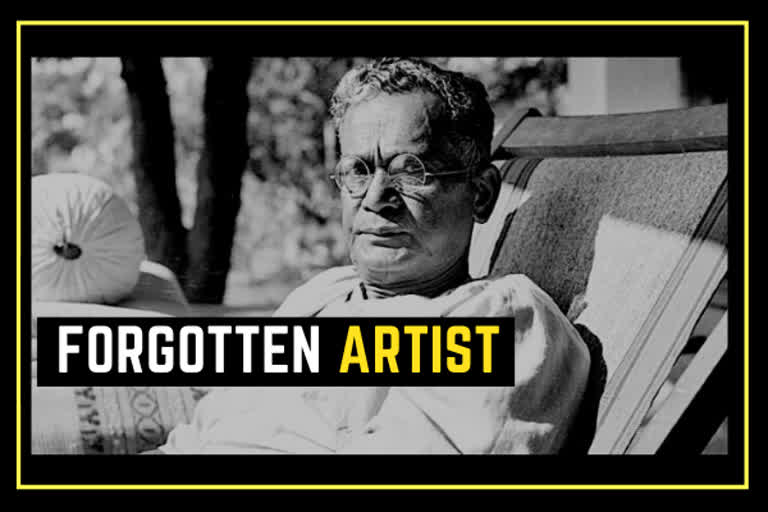Nandalal Bose was one of those painters who fought against all odds to pursue his passion which ultimately turned him into one of India's most celebrated artists of the 20th century. During his career span, Bose earned trust and respect of the Indian Government and he was assigned with some of the most distinguished projects by the Government of Independent India, including designing the pages of the Constitution. However, neither his contributions nor his creations found their way in the history books or any eminent museum.
Nandalal Bose was born on December 3, 1882, in a middle-class Bengali family of Kharagpur, in Bihar's Munger district. Although, Khetramoni Devi, his mother, who was a source of inspiration to him; died when he was just 13 years old. Picking up his mother's trait of improvising toys and dolls, Bose took an active interest in molding wet clay and decorating Durga Puja pandals.
As a young child, whenever Nandalal used to visit Kolkata, he used to stay at his grandfather's residence (known to be a rich man of his time) in Howrah, West Bengal and eventually he relocated to this place from Kharagpur. Presently, a government bus stand is being operated at his abandoned house in Kharagpur.
At the age of fifteen, Bose moved to Calcutta for his high school studies in the Central Collegiate School.
Bose wanted to study art, but he was not permitted by his family. Unable to qualify for promotion in his classes, Nandalal moved to other colleges, joining the Presidency College in 1905 to study commerce. After repeated failures, he persuaded his family to let him study art at Calcutta's School of Art.
Poet Rabindranath Tagore, in one of his brief accounts, said that Nandalal Bose was a personality who devoted his life towards work, indifferent to worldly success.
Ramcharit Singh, an English professor at Hari Singh College published a memoir of the life of Nandalal Bose in which he described his family as a middle-class Bengali family.
Singh in his book had written that Bose's father-Purna Chandra Bose, started his service as a manager under the dominion of Darbhanga Maharaj. Later, after becoming Maharaj's trustable servant, his father served as an architect to the state.
A middle school located in Haveli Kharagpur, where Bose completed his early education, has now become a dilapidated structure. Although several houses have been built around the school, the government failed to develop it as a heritage centre.
